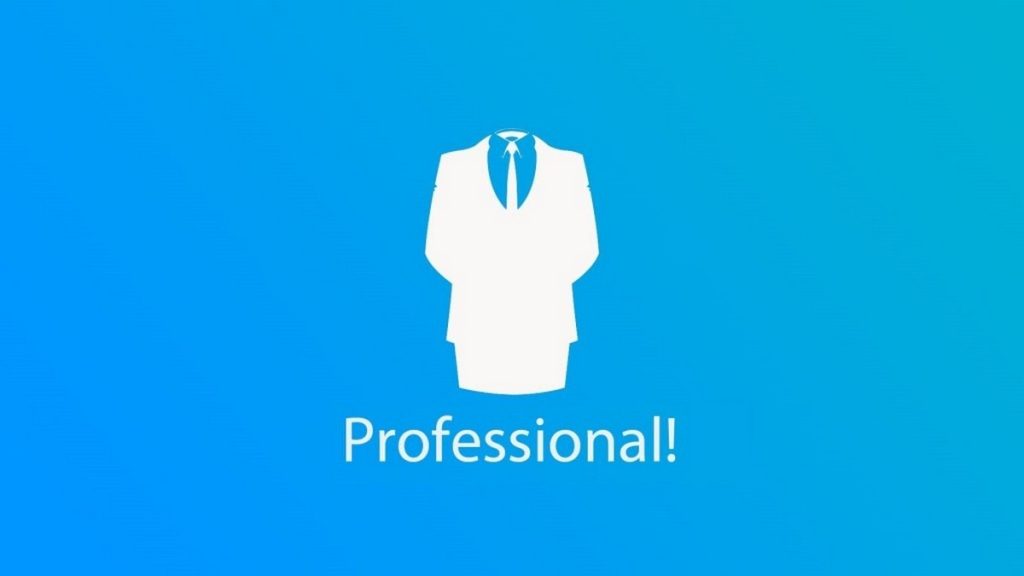Be Professional!
It’s not always easy to deal with difficult situations at work. Sometimes you might not know how to respond to a customer or your boss.
That’s why it’s important to use the right phrases and words when you’re speaking English.
In this blog post, we will discuss five common situations in any workplace to help you to avoid the things that you should never say.
What does “Acting like a professional” means?
When you’re acting like a professional, you’re putting your best foot forward. You’re behaving in a way that reflects positively on you and your company. There are several things that you can do to act like a professional, including:
– Dressing appropriately
– Speaking calmly and politely
– Avoiding negative body language
– Being respectful of others
When you’re acting like a professional, you’re setting an example for others and showing them that you take your work seriously.
Professional Reputation

A person’s reputation is very important. It can affect their career opportunities and how people perceive them. A good reputation is one that is built on trust, competence, and integrity.
There are several things you can do to maintain a good reputation, including:
– Acting with integrity
– Behaving in a professional manner
– Building strong relationships with colleagues
– Showing competence in your work
– Being truthful and honest
It’s important to remember that a good reputation takes time to build and it can be damaged very easily. Be mindful of your actions and the way you behave at work, and you’ll be on the right track to maintaining a good reputation at work.
Professional Attitude

When you have a professional attitude, it shows that you’re serious about your work and that you take your job seriously. It also shows that you’re respectful of your colleagues and customers. There are several things you can do to maintain this type of attitude, including:
– Showing enthusiasm for your work
– Being polite and respectful to others
– Acting courteously
– Resolving disagreements calmly
– Maintaining a positive attitude
Attitude is important for maintaining a good reputation at work. Be sure to always act in a professional manner and put your best foot forward in order to remain professional. It will pay off in the long run!
Examples of how to act professionally in the workplace
1. Be on time
2. Dress professionally
3. Be respectful to others
4. Avoid negative body language
5. Stay calm under pressure
6. Maintain a positive attitude
7. Be mindful of your actions
Tips for staying professional in difficult situations

When you’re faced with a difficult situation at work, it’s important to stay calm and professional. Here are a few tips for doing just that:
1. Stay focused on the task at hand
When you’re upset or angry, it can be difficult to focus on anything else. However, if you want to handle the situation calmly and professionally, it’s important to stay focused. Take a few deep breaths and remind yourself of what needs to be done.
2. Remain positive
It can be tough to remain positive when you’re feeling stressed or anxious, but it’s important to do so. When you’re positive, it shows that you’re confident and capable of handling the situation.
3. Be respectful
No matter how upset or frustrated you may be, it’s important to remain respectful toward others. Be polite and courteous, even if they’re not being respectful towards you.
4. Avoid anger and arguing
Anger and arguing can quickly lead to chaos and drama. If you want to handle the situation professionally, it’s best to avoid these things. Stay calm and rational, and try to resolve the disagreement peacefully.
5. Be patient
Sometimes, the best thing you can do is simply wait for the situation to resolve itself. Be patient and allow time to do its thing. Don’t take things into your own hands; let the situation play out naturally.
Five common situations in any workplace to help you to avoid the things that you should never say
I’m going to walk you through five situations that are super common in just about any workplace to help you to avoid the things that you should never say and give you some really simple expressions that will help people to see you for the helpful professional that you truly are.
Situation #1 Someone asks you a question but you don’t know the answer.
When someone asks you a question and you simply don’t know the answer, well, never say: “I don’t know” even though this is the truth, you’re not being helpful at all.
So saying “I don’t know” in the workplace, especially to a customer, sounds really unprofessional, even a little bit rude. It’s like saying you don’t care.
So to sound more professional and to show that you do care, try saying:
“I’m not sure, but I can find out.”
Or you could say: I’ll find out for you.
Here’s another one: Let me come back to you on that.
So you can use this to say that you need a little more time to find the answer but you’re assuring the person that you will try to help them.
Situation #2 Someone asks you if you can do something by a specific time.
So this happens all the time at work, right? Especially if you work at a place that has deadlines.
When someone asks you if something can be done by a certain time don’t use the phrase:
I’ll try.
I mean, of course, you’ll try, and trying is great but in English, if you use the verb ‘try’, you’re not really committing to anything. You’re not saying that you will or you won’t or you can or you can’t do something, right? You’re not committing to a deadline at all so you’re not being very helpful and this is not very professional at all.
The person asking you has asked a specific yes/no question: Can you get it done by this time?
So you need to give a really clear-cut answer, okay? You can sound much more like a professional person simply by saying:
I can get it done by 2pm.
Great! But what if you can’t get it done by 2pm? Or by the end of the day? What if you can’t get it done? Well, you definitely shouldn’t say that you’ll try. Seriously, saying that you’ll try might make them go away in the short term but you’re going to let them down in the long run and that is really unprofessional. You need to be honest with them but you also need to make a commitment to reassure them when you can get it done by.
So in this situation, try an alternative like:
I don’t think I can manage it by 2, but I can have it done by 4!
Actually, I don’t think I can manage it by 2, but I can definitely have it done by 4.
I don’t think I can manage it by Thursday, but I can definitely have it done by Friday.
Would that be okay?
Situation #3 Your boss or a customer is angry or disappointed about something.
Now it could be something that you did personally like maybe you were late or perhaps it’s not actually your fault but you still need to deal with this situation.
Alright so nobody really wants to deal with angry or frustrated customers, do they? And if something like that’s ever happened to you, you might even freeze up and get really awkward. It’s not really a good look, right? But of course, there’s always going to be someone who’s unhappy or frustrated about something, at some point. It’s just part of working life, isn’t it?
So it’s a good idea to have a plan. So in those situations, you’ve got something to say to make the situation better and not worse. Lucky for you, there are two really important words that will make everything a little better.
I understand.
Simple, huh? So before you freeze up and just say “Okay” or “Yes…” just remember, all you need to say is “I understand”
With these really simple words, for just a moment you can make the situation better. You’ll help the other person to see that you’re listening and show them that you care about helping them. And of course, then you need to offer something to help the situation, right? Be Professional and try these:
I understand. Let’s see what we can do.
I’m sorry, I understand. Let’s see what we can do about this.
Notice that I used the word ‘let’s‘ and ‘we‘ instead of ‘I‘ This is a really great way to involve the other person in the solution.
I understand you’ve come all this way and it’s not ready. Let’s see what we can do.
Awesome! So you’re ready for the next one, right?
Situation #4 You’re keeping somebody waiting.
Well when you’re keeping somebody waiting, what should you do? Maybe you’re busy with another customer, maybe you’re on a phone call or maybe you really need to go to the toilet and you’ve got to leave quickly.
Whatever the case, the worst thing that you could possibly say is:
Things are just a little busy today so it’s taking a bit longer than unusual.
Yeah, yeah we’ve just had loads of new clients come in. Hang on a sec!
No no no no no no. This is not good. Okay? You know this situation, right? It’s just rude but fortunately, there are a couple of phrases that you can memorize that will have you sounding really professional and keep the person who’s waiting happy.
So the first one is:
I’ll be with you in a moment.
And this expression just lets them know that you know that they’re there and that you won’t be long until you give them your full attention.
Brilliant! Alright, and the second one is:
Sorry to keep you waiting, I’ll be right there.
You try it.
Sorry to keep you waiting, I’ll be right there with you in just a minute.
Situation #5 When somebody asks you a question but you didn’t hear them.
Or maybe you didn’t understand them, what should you do?
Never say “What?” ever. Right? It’s a really big no-no in the workplace. You can sound much more professional by saying:
I’m sorry, I missed that.
Be professional and try it.
I’m sorry, I missed that. Could you say it again, please?
Or
Sorry, would you mind just repeating that for me? I missed it.
Now there are lots of different ways to let someone know that you didn’t understand them, right? And politely ask them to repeat themselves a little more clearly.
The benefits of acting like a professional
Acting like a professional can have many benefits, including:
– It can help you build a good reputation at work
– It can help you maintain professionalism in difficult situations
– It can help you stay calm under pressure
– It can help you maintain relationships with colleagues
So I hope this article has given you some options to help you sound a little more professional at work.
Be Professional and Good luck! 😉








